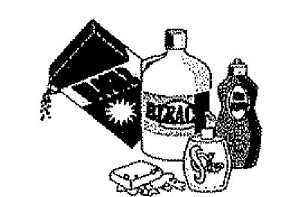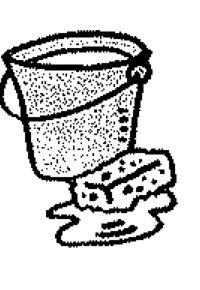Louisiana Environmental Action Network (LEAN) re-entry tool kit
Categories
.
The Louisiana Environmental Action Network/LEAN, would like to offer some assistance to you during this very difficult time. We know how important it is for everyone to get back into their, homes and get their lives back to normal.
LEAN is giving you this re-entry kit to help you keep safe, and healthy. Please take every precaution while you work to clean-up your home.
God Bless You and God Bless Louisiana!
Marylee Orr
Executive Director
Louisiana Environmental Action NetWork/LEAN
IMPORTANT FACTS FOR RE-ENTRY
* There may still be hazards present in your home and on your property. Some of which may be difficult to detect, such as germs and mold spores!
* If you know you are immuno-compromised, have underlying lung problems, such as asthma or allergies, are pregnant, under the age of 18, elderly or have medical needs, you should consider not returning until further environmental and health assessments are complete and emergency and medical services are more reliable.
* You are advised to have tetanus, hepatitis-A and hepatitis-B vaccinations before returning home.
* Have a safety plan in place in case you get sick or injured. Make sure someone knows where you are and can check on you to ensure you are safe. Phones, even cell phones are not working well so make sure you have a way to contact someone if you need help.
* Bring plenty of bottled water with you to drink. Do not drink any water that you did not bring with you.
* If you smell gas or your home makes creaking sounds or appears to be unstable on its foundation LEAVE I MMEDIATEL Y. Alert local emergency services ofa gas leak.
* If you come in to contact with standing water and matedal or supplies affected by the floodwater you should wash with soap and clean water as S9.Q.o as possible. Always wash your hands and body with soap and warm, clean
water and use an alcohol based hand sanitizer.
* To reduce the risk ':of mold and bacteria remove wet materials (e.g., wood, paper, clothing) and discard those that cannot be thoroughly cleaned or dried. Please be aware removing objects from your home and taking them out of the area may be a risk for transport toxins and bacteria to those around you.
* Limit your exposure to mold and use protective supplies when entering your house. Wear a particulate respirator of at least N-95 efficiency, work gloves and goggles/safety glasses are essential. Foot protection is highly recommended.
* If you begin to have problems breathing, develop a rash, nausea, vomiting, dizziness, diarrhea, or see that you have a skin infection LEAVE THE AREA IMMEDIATELY AND SEEK MEDICAL ATTENTION.
* We recommend the use of sun block and bug repellent. Standing water is a danger for disease from mosquito bites.
* Use caution when using generators and other gasoline powered items, make sure to follow manufacturers instructions and avoid Carbon Monoxide poisoning.
This kit has been provided by the Louisiana Environmental Action Network and made possible by the generous donations from people all over the world WWW.LEANWEB.ORG
This is not a commercial solicitation. All assistance is free of charge!
WHAT YOU CAN'T SEE COULD HURT YOU AND YOUR FAMILY
After a flood event many hidden dangers can still be present in your home:
• Mold - grows rapidly in houses that have been flooded and can cause health problems. 
• Raw Sewage - flood waters connect with sewerage systems, contaminating the water with germs which can remain in sediments (sludge).
• Chemical Contamination - household and industrial chemicals spill into flood waters and can remain in sediments (sludge)
You CAN protect yourself and your family by following simple precautions:
Mold - allow home to air out thoroughly before reentering, avoid breathing mold spores¬ dust). Use the contact information at the bottom of this sheet to get full instructions on the safe removal of mold.
Sewage and Chemical contamination of the sediments (sludge) in your home - avoid creating and breathing dried sludge dust. Avoid using any Items that have come into contact with flood waters or sludge. Use the contact information at the bottom of this sheet to get full information about the safe removal of contaminated sludge.
If you feel your home may have been contaminated with mold, sewage or chemicals please call one of the contacts below!
CONTACT:
Louisiana Environmental Action Network - 1-888-HLP-LEAN (1-888-457-5326)
The U.S. Environmental Protection Agency - 1-800-887-6063
Center for Disease Control - 1-800-232-4636
Louisiana Department of Environmental Quality - 1-888-763-5424 Louisiana Department of Health and Hospitals - 225-342-1532 Red Cross - 1-866-438-4636
FEMA - 1-800-621-3362
This is not a commercial solicitation. All assistance is free of charge!
Keep Safe
Be Safe

